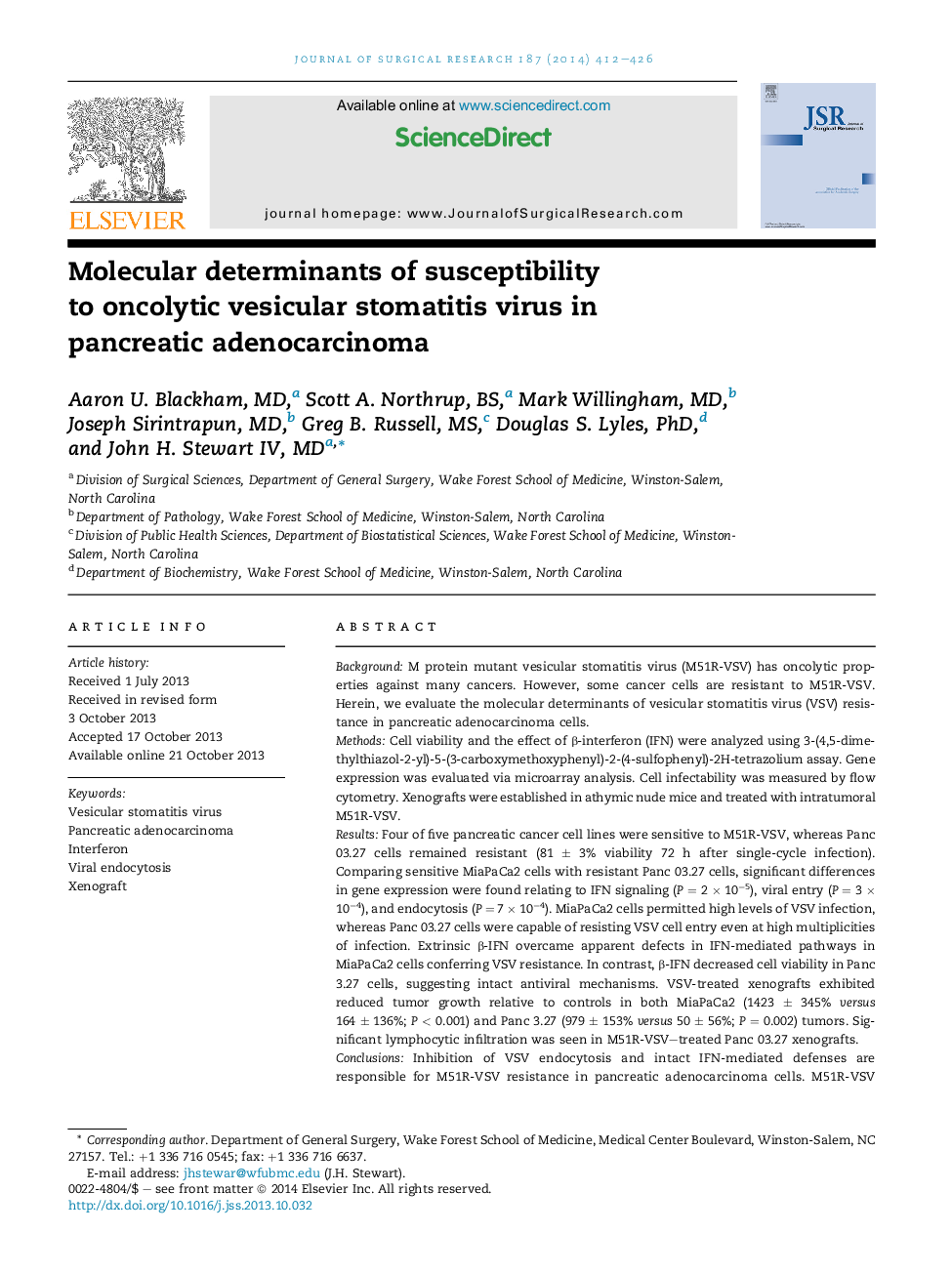| کد مقاله | کد نشریه | سال انتشار | مقاله انگلیسی | نسخه تمام متن |
|---|---|---|---|---|
| 4300410 | 1288420 | 2014 | 15 صفحه PDF | دانلود رایگان |

BackgroundM protein mutant vesicular stomatitis virus (M51R-VSV) has oncolytic properties against many cancers. However, some cancer cells are resistant to M51R-VSV. Herein, we evaluate the molecular determinants of vesicular stomatitis virus (VSV) resistance in pancreatic adenocarcinoma cells.MethodsCell viability and the effect of β-interferon (IFN) were analyzed using 3-(4,5-dimethylthiazol-2-yl)-5-(3-carboxymethoxyphenyl)-2-(4-sulfophenyl)-2H-tetrazolium assay. Gene expression was evaluated via microarray analysis. Cell infectability was measured by flow cytometry. Xenografts were established in athymic nude mice and treated with intratumoral M51R-VSV.ResultsFour of five pancreatic cancer cell lines were sensitive to M51R-VSV, whereas Panc 03.27 cells remained resistant (81 ± 3% viability 72 h after single-cycle infection). Comparing sensitive MiaPaCa2 cells with resistant Panc 03.27 cells, significant differences in gene expression were found relating to IFN signaling (P = 2 × 10−5), viral entry (P = 3 × 10−4), and endocytosis (P = 7 × 10−4). MiaPaCa2 cells permitted high levels of VSV infection, whereas Panc 03.27 cells were capable of resisting VSV cell entry even at high multiplicities of infection. Extrinsic β-IFN overcame apparent defects in IFN-mediated pathways in MiaPaCa2 cells conferring VSV resistance. In contrast, β-IFN decreased cell viability in Panc 3.27 cells, suggesting intact antiviral mechanisms. VSV-treated xenografts exhibited reduced tumor growth relative to controls in both MiaPaCa2 (1423 ± 345% versus 164 ± 136%; P < 0.001) and Panc 3.27 (979 ± 153% versus 50 ± 56%; P = 0.002) tumors. Significant lymphocytic infiltration was seen in M51R-VSV–treated Panc 03.27 xenografts.ConclusionsInhibition of VSV endocytosis and intact IFN-mediated defenses are responsible for M51R-VSV resistance in pancreatic adenocarcinoma cells. M51R-VSV treatment appears to induce antitumor cellular immunity in vivo, which may expand its clinical efficacy.
Journal: Journal of Surgical Research - Volume 187, Issue 2, April 2014, Pages 412–426